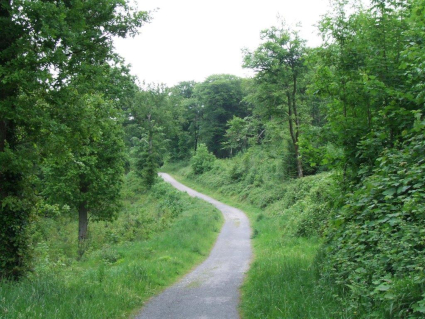Andrew Doyle, Minister of State at the Department of Agriculture, Food & the Marine, today announced a new “Woodland Environmental Fund” to boost the creation of more native woodlands in Ireland.

This new initiative provides an opportunity for businesses to partner with the Government and Irish landowners and get behind the national effort to plant an additional 3 million native trees between now and 2020. The Fund is an initiative of the Department of Agriculture, Food and the Marine under its national Forestry Programme 2014 -2020.
The Minister commented that
Irish native woodlands are an integral part of our natural heritage, history and culture, and are unique in terms of their biodiversity. Under my Department’s current Forestry Programme, I am delighted that planting of such woodlands have more than trebled in the last five years but I believe we can drive this further. This Fund provides an opportunity for Irish businesses to partner with my Department’s existing afforestation scheme to fund the planting of these woodlands. The benefits of this partnership will be for everybody from the landowner, the sponsoring businesses through to society as whole through the delivery of new native woodlands and the proven benefits they deliver for water quality, climate mitigation and biodiversity.
The DAFM afforestation scheme already covers 100% of the cost of establishing native woodlands and also pays an annual premium to the landowner of up to €680 per hectare payable each year for 15 years. The proposal under the WEF will be for an additional top up of €1,000 per hectare by the business as a once-off payment for farmers and other private landowners. The WEF is being run on a pilot basis until the end of the current National Forestry Programme 2014-2020 and the outcome of this pilot phase will be used to inform the design of the next Programme. DAFM has worked with a range of stakeholders on the design of the Fund including NewEra and Natural Capital Partners.
The Minister encouraged businesses to take part in the initiative saying that
WEF is an ideal ‘Corporate Social Responsibility’ (CSR) project, as the restoration of Ireland’s once-vast forests of oak, birch and alder invokes a shared emotion amongst many of its citizens. Businesses can be associated with individual native woodlands and use the environmental benefits linked to these forests to demonstrate that they are meeting their corporate social responsibilities. These forests will become a long-lasting feature of the landscape, providing environmental benefits on an ongoing basis and adding colour and diversity to an area that can be enjoyed by local people and visitors alike.
Editor Notes
Further details on the scheme can be found at https://www.agriculture.gov.ie/forestservice/grantsandpremiumschemes2015-2018/ or by contacting Karl Coggins at karl.coggins@agriculture.gov.ie
The current Native Woodland Scheme has an annual target for 2019 and 2020 under 450 ha/ year. The main species planted under this scheme are Oak, Alder and Birch.
Outline of WEF Initiative
The WEF aims to establish a framework for all businesses interested in using the establishment of native woodlands as a Corporate Social Responsibility. The initiative itself consists of the following steps;
STEP 1: Farmers and other landowners interested in planting native woodlands may opt into the WEF as part of their standard application under DAFM's existing Native Woodland Establishment Scheme.
STEP 2: DAFM undertakes its standard evaluation procedure (which assesses the environmental and silvicultural suitability of the proposal) and, if appropriate, issues approval for the planting of native woodland.
STEP 3: The Registered Forester (or Forestry Company) working on behalf of the landowner, provides a participating Natural Capital Facilitator (NCF) with details of the proposed woodland.
STEP 4: That NCF then connects with current or future business clients that wish to contribute to the fund, and presents them with a list of native woodlands with planting approval.
STEP 5: Businesses can engage NCFs to describe or measure in a scientifically verifiable manner, the environmental benefits that are likely to be generated by the new native woodland. These could include, for example, an improvement in water quality in local rivers and streams, the positive impact the woodland will have on biodiversity in the area, or the amount of carbon that will be captured as the woodland develops.
STEP 6: An individual business can then decide to support a particular project that best fits its requirements regarding size, location, and the types of environmental benefits that are most relevant.